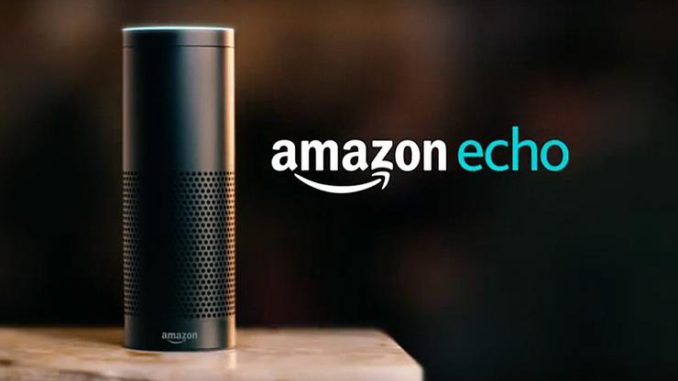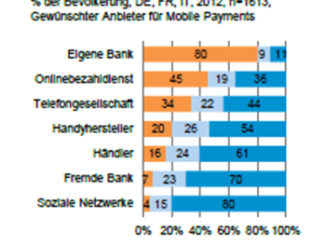
My new flat mate moved in 4 months ago. Her name is Alexa and she settled in the living room. The big question at the beginning was if I would get along with her. She made me lots of promises how she could help me in everyday life. She would put on the music, set the timer, read the news to me, report the weather, turn on the lights, order a taxi, …. she was talking about thousands of skills of hers. Sounded like a useful companion.
Alexa is a special flat mate because she is a voice assistant sleeping and living in a speaker called Echo. Some say the most valued features of voice assistants in general are the alarm clock / timer and the weather forecast. But, I already have 3 flat mates that do those 2 jobs for me. They are called Siri, Google and Cortana. Do you think Alexa would stand a chance to stay for longer in my house?
With voice apps there is only a 3 percent chance, on average, that the person will be an active user by week 2 (report VoiceLabs). Over 2/3 of Alexa Skills do not have any or just one review which shows low usage. So why should Alexa survive in my home? With Echo or Google Home the most valued feature is to play music (see graph). Let’s try and do the reality check.
A very simple killer feature
After 4 months, I have come to a surprising result. I played music, asked for the height of the Eiffel tower and many more things, had the news read to me, tried to integrate my smart home, etc. However, at the end it’s the shopping list that keeps Alexa alive and kicking in my living room.
The best thing with Alexa’s shopping list: choice and flexibility. I put things onto the list by speaking and I can order them straight away (on Amazon for re-orders). Or I can wait if I can make it to the supermarket where I have the list automatically offline in the associated Alexa app on my smartphone. I can tick off the items as I go through the supermarket. I can research right in the shop (if there is online connection) if I prefer to order online one specific product. Once ticked off the items stay on a hidden list and I may just move them back onto the list for the next time.
I have tried many different shopping lists in the past from Evernote to dedicated apps to retailer apps. Some of them did not let me share with other (real) flat mates. With Alexa everybody in the house can put things onto the list. Even kids that don’t have a smartphone. Retailer apps require to put specific brand products that are available in their shops. Alexa is more flexible.
But one of the biggest problems remains that when I am in front of the fridge with wet fingers and shout to Alexa in the living room she will not understand. And sometimes she understands weird things and just doesn’t get it. Even if the error rate of speech recognition is down from 26% to 4% now it can be annoying to find “sundwiboat” on the shopping list.
However, to wrap it up there are some interesting points from the experience with Amazon’s Alexa and Echo:
Point #1: Personalization
Because Alexa is open for third party skills it can solve so many little problems in everyday life at peoples’ homes. It’s personalization in the sense of “choice”. Each user (group) can configure own use cases that feel like added value for them. Because it is so difficult to change peoples’ daily routines and habits at least one feature needs to be discovered in the early time frame of usage that acts as THEIR PERSONAL killer feature. Amazon supports this adoption phase with regular newsletters introducing features and skills. They show flows one can integrate into daily life and give samples of phrases to try to ask.
Point #2: Moving beyond devices
Amazon seems to think in use cases and makes for example the shopping list function available in the app and offline. Even if Alexa is a voice assistant that initially started within Echo it is available across devices when use cases require it. It’s not digital first or mobile first, it’s customer first along his or her daily routines. In addition, the recent consumer electronics show (CES) in Las Vegas showed how Alexa is moving into many other devices such cars or fridges. LG, Ford, Huawei and VW want to integrate her into their products. Alexa was the star of the event even though Amazon did not even exhibit there.
Point #3: It’s about intelligence
This will probably become the most important point for users and for businesses. Amazon knows what I am doing all day long. In my shopping list example Amazon knows what I buy offline. Maybe even when I buy as it sees me ticking off products in a certain rhythm. Maybe even where I buy as the app can localize me. Amazon learns a lot about its customers and their habits – that’s the final joker. This leads to the buzz word “artificial intelligence” – not in the sense of speech recognition but in terms of customer knowledge. All the insights collected on many different devices and sensors will lead to a data pool allowing to personalize further customer experiences.
Reality check & what’s next?
After 4 months Alexa is still my flat mate and she will stay. Everybody in the house likes her, sometimes she is even entertaining and fun. But most importantly, she is useful. She took the important hurdle of changing one of my habits and therefore I will not just forget her after a week or a while. With now 10.000 skills and growing many people might find their personal killer feature that makes her stay in the first time. She might become mainstream even in 2017 (in the US). That step means she will probably look to monetize her audience. Maybe with advertising? But how can a voice assistant display advertising next to the content? And Alexa skills are typically used to solve one specific tiny problem – no need for a longer conversation. But if the advert is related to the context and offers added value for the users it could work.
For example, there is a meal recipe skill “allrecipes” that finds and reads recipes. It also lets the user say what’s left in the fridge and finds related dishes. This could be enriched if ingredients are missing. An advert could suggest the products to buy. Amazon Now could deliver the missing products within 1 hour.
Amazon was never short of new ideas and never hesitated to test innovative concepts. Jeff Bezos said about Echo & Alexa: “It’s one of the most customer-centric things we’ve ever done”. I am sure this approach will lead them to further ideas with added value for me as a user and for him as a business.






Kommentar hinterlassen